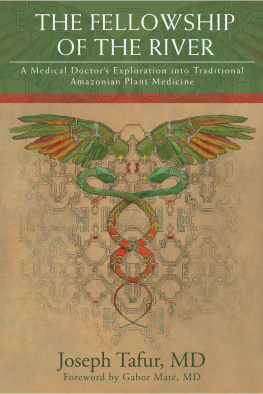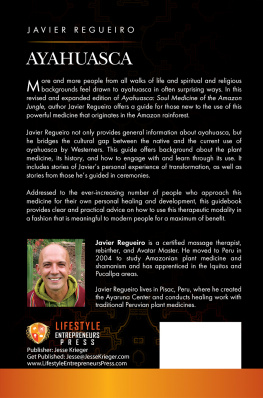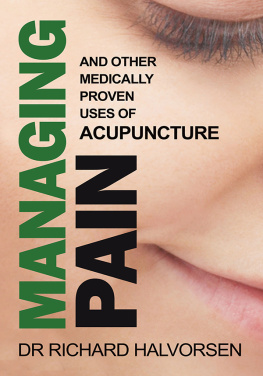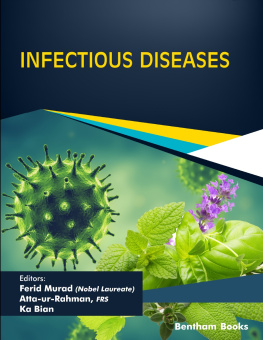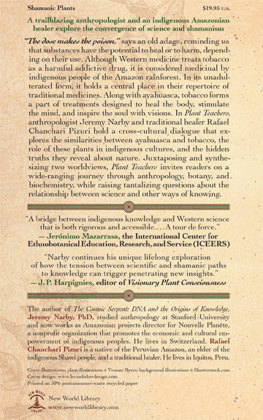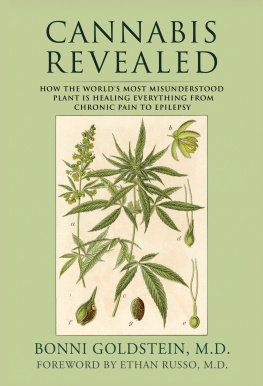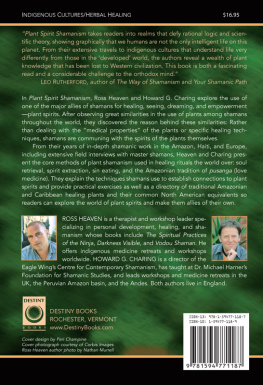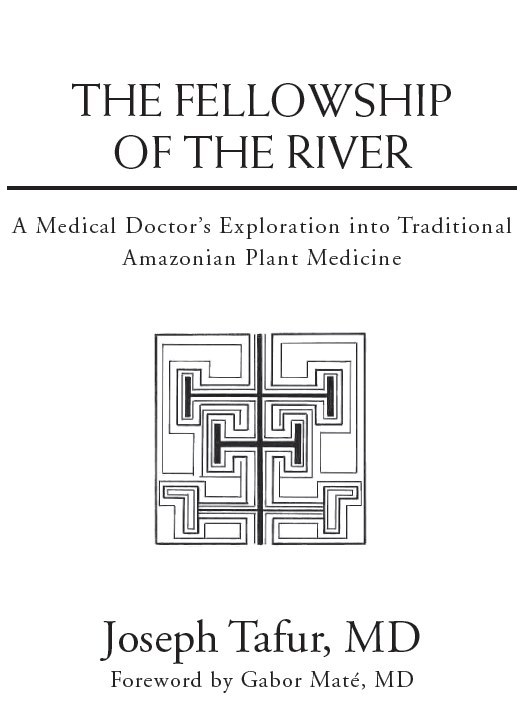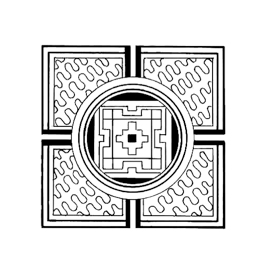The Fellowship of the River
This edition first published in 2017 by Espiritu Books
10645 N. Tatum Blvd., Ste. 200-283
Phoenix, AZ 85028
Copyright 2017 Joe Tafur
Foreword Copyright 2017 Gabor Mat
All rights reserved. No part of this publication may be reproduced or transmitted in any form or by any means without permission in writing from Joseph Tafur and Espiritu Books.
Espiritu Books
Edited by Caroline Pincus (carolinepincus.com)
Cover art and chapter drawings by Markus Drassl
Cover design by Jane Hagaman and Andrea Contreras Text design by Jane Hagaman
ISBN: 978-0-9986095-0-8
eISBN: 978-0-9986095-1-5
Printed by CreateSpace
for my father
Contents
Note
To see the many photos and images related to this book, please visit my website: https://drjoetafur.com/the-fellowship-of-the-river/ .
Disclaimer
The material presented in this book is intended for informational purposes only, not to diagnose, prescribe, or treat a health concern or ailment. If you are concerned about your health, please seek advice from a professional in your area.
Foreword
AS A WESTERN-TRAINED DOCTOR, I have long been aware of modern medicines limitations in handling chronic conditions of mind and body. For all our astonishing achievements, there are a host of ailments whose ravages we physicians can at best alleviate. In our narrow pursuit of cure, we fail to comprehend the essence of healing. Hence the popularity of ayahuasca, the Amazonian plant medicine to which many Westerners are turning to heal from physical illness or mental anguish, or as they seek a sense of meaning amid the growing alienation in our culture.
Ayahuasca and plant healing is the subject of this work by my Colombian-American medical colleague Joe Tafur. Dr. Tafurs book serves a triple function: a fascinating personal history of shamanic self-discovery, a compendium of convincing case histories of the plants healing potential, and an informed scientific meditation on how this jungle vine and related plants can, under shamanic guidance, result in the astonishing physical, emotional, and spiritual transformations he has witnessed, as have I, in our work with the madrethe mother, as the vine is called in the Amazon basin.
One of the most frustrating failures of Western medical practice is its lack of awareness of the unity of mind and body despite voluminous, elegant, and absolutely persuasive research evidence that the distinction between mind and body is false, unscientific, andin real lifeimpossible. Joe Tafur relies adeptly on such evidence to indicate why the miracles he describes arising from shamanic plant ceremonies are, in fact, precisely what one would expect if one were grounded in a holistic understanding of human beings in health and illness.
His triumphant case histories include relief from chronic conditions that mainstream medical practice considers subject at best to symptom management, but never cure: psoriasis, chronic migraine, inflammatory bowel disease, along with mental health conditions such as depression and anxiety.
The employment of ayahuasca in the treatment of refractory mental health issues has long been studied, in the countries where official paranoia and narrow-mindedness have not interdicted the treatment with the plant and where its use is grounded in indigenous cultural traditions. As an article in The Medical Post reported, [in] a review of 28 human studies recently published in the Journal of Psychopharmacology, the researchers concluded that not only did the ayahuasca experience show anti-depressive and anti-addictive potentials, it also had a physiological effect on the brain, affecting the size and thickness of the areas associated with impulse control, decision-making, pain and memory. These are, of course, some of the key brain systems impaired in addictions.
From my own very first experience with ayahuasca, I saw very clearly how it can help people with emotional and spiritual issues. It opened me up, allowed me to experience emotions of sadness and loss I had long suppressed, but also a deep love that was greater than any grief or trauma I had experienced. Brain scans show that it activates parts of the cerebrum where childhood emotional memories are stored, and also areas where adult insight is generated.
In its proper ceremonial setting, under compassionate and experienced guidance, the plantor, as tradition has it, the spirit of the plantputs people in touch with their repressed pain and trauma, the very factors that drive all dysfunctional mind states. Consciously experiencing our primal pain loosens its hold on us. Thus may ayahuasca achieve in a few sittings what many years of psychotherapy can only aspire to. It also allows people to re-experience long-lost inner qualities, such as wholeness, trust, love, and a sense of possibility. People quite literally remember themselves.
But how does the plant support healing from conditions such as chronic inflammatory bowel disease or psoriasis, or other auto-immune conditions, as both Joe Tafur and I have observed? Dr. Tafurs experience and theoretical explorations provide a more-than-plausible exploration of that question.
Unlike the prevailing Western mind-body split, a holistic understanding informs many aboriginal wisdom teachings. Like all plant-based indigenous practices around the world, the use of ayahuasca arises from a tradition where mind and body are seen as inseparable, in sickness and in health. Here Joe Tafur relies on impeccable Western science theories about the plants healing capacitiesscience that has amply confirmed the ancient wisdom.
In several chapters Dr. Tafur explains, and with case examples illuminates, the unity of mind/body in health and illness. He shows how emotional trauma can cause inflammation of, say, the lungs airways or other organs; how emotional disturbance can dysregulate the autonomic nervous system; how stress impairs and confuses the bodys immune apparatus. It follows that a regaining of emotional balance, the working out of past trauma, and connection with our deeper humanity should and can have powerfully beneficial physiological effects. Such experiential transformation, if genuine, can powerfully affect the hormonal apparatus, the nervous and immune systems, and all organs such as the brain, the gut, and the heart. Hence ayahuascas potential healing capacity.
As Dr. Tafur writes, Reconnecting to your bodily senses also involves reconnecting the mind to your internal sensations: how you feel inside your body, your heart, your gut, and throughout. This sense is called interoception. We experience our emotions through these sensations. These internal sensations also inform us about the physiologic condition of our body. Again, we remember ourselves.
The new science of epigenetics has shown that emotional stressors can have negative effects on gene functioning, effects that are transmittable even to future generations. Tafur also speculates, quite plausibly, that positive experiences can help to reverse such changes or, indeed, induce positive changes in gene activity.

